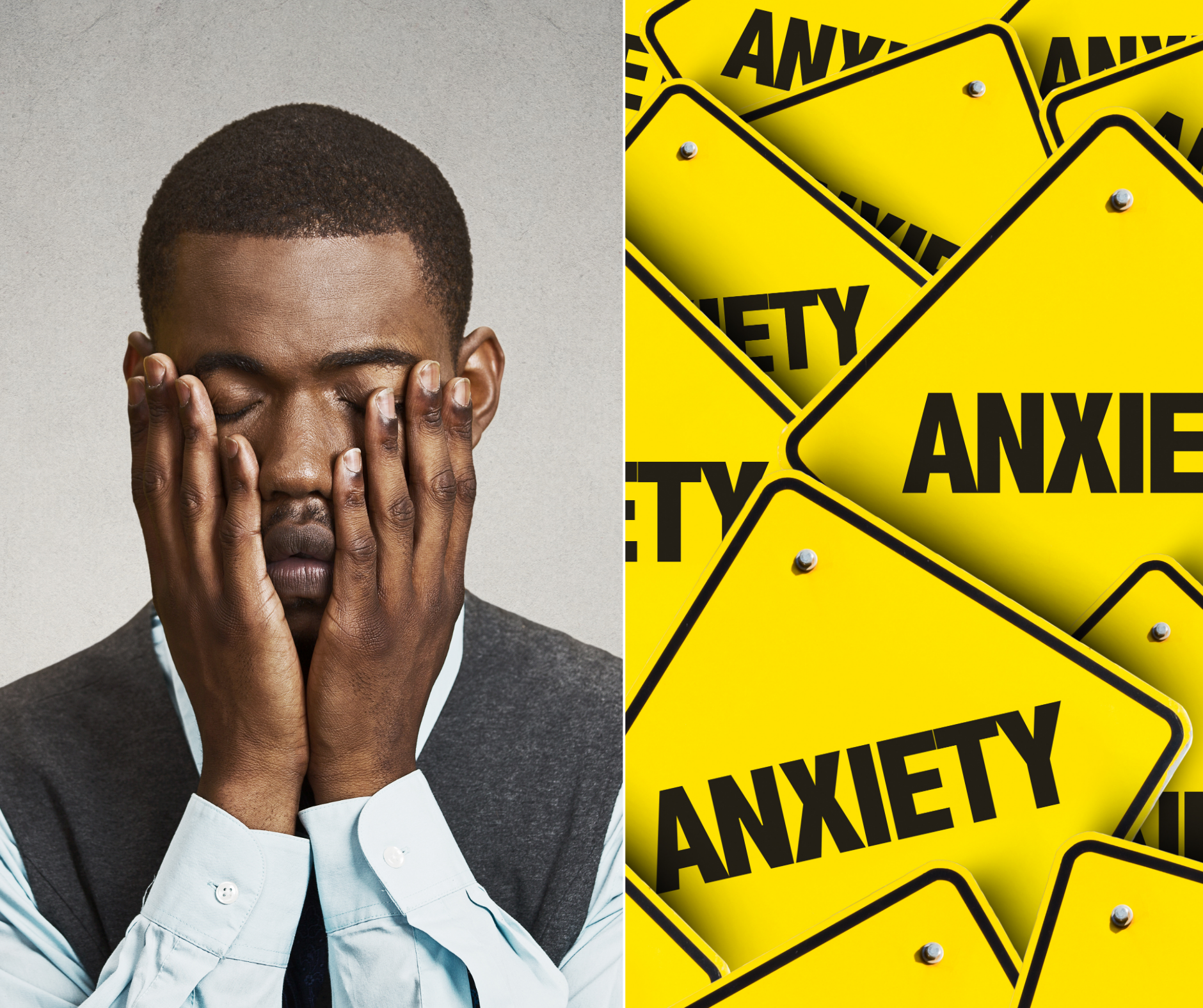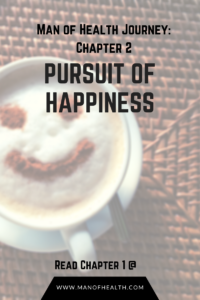
Give me 5 minutes and I can explain how to decrease your anxiety.
- Post author:Christopher C
- Post published:September 15, 2020
- Post category:Mental Health
Yes men we have a lot on our plates.
We are fathers, husband’s, and providers, but we must remember that we are human. I know for years society has taught us that emotions equal weakness, but this cannot be further from the truth.
Emotions make us human. We have a duty to understand our emotions and to express them.
When it comes to mental health, anxiety is a very serious issue. When people think of anxiety they picture someone who is always nervous and maybe even high strung. We sometimes think that someone who is suffering from anxiety is blowing things out of proportion but we are wrong. We must educate ourselves so that we can deal with our own anxiety or understand someone who suffers from this problem. Anxiety interferes with daily living.
Everyone worries about something but anxiety is worrying to the point that it controls your life. Anxiety is an emotional response to an actually threat (sickness, school performance, something that is actually occurring) or anxiety can be an emotional response to something that will occur (Death, bills, retirement plan).
The key difference between worrying and anxiety disorder is the fear and emotions that control your daily living. A person suffering from anxiety disorder may stop doing everyday things.
Types of anxiety:
1. Social anxiety disorder:. Fear of attending social events, fear of small talk, meeting strangers, being assertive, also doing things in public
2. Panic disorder: is having unexplained panic attacks (shortness of breath, fast heart rate, sweating, and chest pain). People who have panic disorders live in fear of the next panic attack.
3. Post traumatic stress disorder: having anxiety related to a past traumatic event.
There are more symptoms…
Symptoms of anxiety disorder:
1. Have anxiety and constant worry for at least 6 months.
2. Involves two or more life circumstances. Your anxiety needs to involve two different areas of your life (relationship, work, school, or finances).
3. Physical symptoms that interrupt daily life. (Restlessness, on edge, difficulty concentrating, sleep disturbances, or muscle tension)
4. Impaired social interactions that are normal for you. Avoiding things that you love because you are anxious.
W – Worry
A– Anxiety
T – Tension in muscles
C – Concentration difficulty
H – Hyperarousal or irritability
E – Energy loss
R – Restless
S – Sleep disturbance
> 3 of the following occurring on most days > 6
months
Screening tool to let you know if your suffering from some of the symptoms of anxiety.
How do I decrease my anxiety and worry?
- Know: Know that your anxiety is not a physical disease, know that your anxiety is insanity, know that your anxiety is not weakness and that you are normal. Know that your anxiety is not overdependency.
- Recognize: recognize that anxiety is a lifetime issue. You must recognize that no one has compete calm at all times. You are trying to find your level of calm.
- Goal setting: Your goal is to decrease your level of anxiety before it reaches an uncontrollable level. Picture your mind as having a gauge and you need to keep a watch on your anxiety gauge. Another goal is to control your physical responses to anxiety. If you have panic attacks when you become anxious find a positive outlet before your gauge fills up (walking, writing, reading)
Other Tips to help with Anxiety:
1. Daily physical exercise. Exercise for at least 30 minutes every day.
2. Establish a sleep routine: Your body needs to rest if the body is not rested, anything and everything can stress it. Establish a nightly sleep routine and follow it. This will allow the body to start to de-stress around a certain time each night.
3. Avoid Stressors: avoid in taking anything that can stress the body. When you consume stressors (alcohol, drugs, caffeine, and tobacco) you automatically increase your anxiety gauge,which makes it easier to implode.
4. Therapy: As men sometimes we try to deal with our issues ourselves which ends up doing more damage. It is vital to have an outside source listen and give advice without judgement. Therapy has been shown to be as effective as medications. Therapy will not eliminate your stress but it will teach you positive conflict resolution.
5. MEDITATION: clears the mind and help empty your anxiety tank. Click here to learn about meditation.
6. Medications: If you try the above techniques and you are still suffering from anxiety there are medications that can help. Medications and the above options could help alleviate your anxiety. Make sure to get with your provider to see what options would work best for you.
One of my go to for my patient’s is buspar it is non habit forming. It does require frequent dosing for a period of time but it has high success rates.
Gameplan (Anxiety)
What is anxiety?
Anxiety and worry that controls your life. This anxiety becomes so that bad that it appears as physical symptoms. Anxiety disorder may prevent someone from doing the things they love.
Types of anxiety:
There are more than these 3 but these are the most common: social anxiety disorder, panic disorder, and post traumatic disorder (PTSD)
Symptoms:
At least 6 months of worry
Worry that occurs in 2 aspects of your life (home,work, relationship, or finances)
Physical symptoms (cheat pain, sweating, difficult breathing, etc)
Impaired social interactions
How to decrease my anxiety?
1. Physical exercise
2. Sleep routine
3. Avoid stressors
4. Therapy
5. Meditation
6. Medication.
Questions to ask provider?
What are the most bothersome symptoms?
What meds will help with my symptoms?
How long will I be on medications?
Who should I contact if symptoms become too much?
Would you like a free E-gameplan? or Do you like these articles?
Sign up for our Man of Health newsletter to see how we can help.

Share via:



